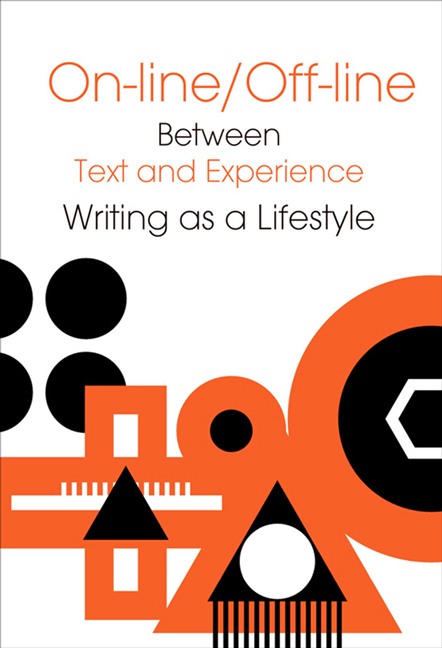Book contents
- Frontmatter
- Contents
- Editors’ Introduction
- ON-LINE/ OFF-LINE
- Literate Existence in the Digital Space. Contemporary Traces of Identity
- Text, Writing, School in Anthropological Perspective
- The Practice of Writing Fan Fiction: A Fan Fiction Writer's Tutorial
- I Write. You Write. They Write. The Literary Works of Fandom as a Factor in Integrating the Community
- Approaches Towards Shame in Contemporary Polish Literature
- People You May Know: Homosexual Men's Identity in the Time of Social Networking Services
- Contemporary Polish Essays: In Search of the Aura of Paintings and Photographs
- The Hybrid Work of Art as Experience
- Reincarnations of the Word: Media, Genres, Practices
- LITERATURE AND CONVERGENCE
Reincarnations of the Word: Media, Genres, Practices
from ON-LINE/ OFF-LINE
Published online by Cambridge University Press: 12 January 2018
- Frontmatter
- Contents
- Editors’ Introduction
- ON-LINE/ OFF-LINE
- Literate Existence in the Digital Space. Contemporary Traces of Identity
- Text, Writing, School in Anthropological Perspective
- The Practice of Writing Fan Fiction: A Fan Fiction Writer's Tutorial
- I Write. You Write. They Write. The Literary Works of Fandom as a Factor in Integrating the Community
- Approaches Towards Shame in Contemporary Polish Literature
- People You May Know: Homosexual Men's Identity in the Time of Social Networking Services
- Contemporary Polish Essays: In Search of the Aura of Paintings and Photographs
- The Hybrid Work of Art as Experience
- Reincarnations of the Word: Media, Genres, Practices
- LITERATURE AND CONVERGENCE
Summary
Abstract
The text presents the project of study of the multimedia, contemporary verbal environ-ment. It proposes the use of the category of speech genres (Bakhtin). Focusing on the sec-ondary genres (genres of verbal creativity) it justifies the argument that “The word is not dead. It is merely changing its skin” (Dick Higgins), and therefore in the living verbal envi-ronment we deal with changing, heterogeneous media of verbal expression that determine, in part, the modes of functioning of particular genres and how they should be described. This paper presents performance, text and hypertext as basic means of functioning of the verbal forms in contemporary culture; means which demand adequate categories of de-scription and research tools in order to avoid textualization of multimedia genres and not to treat them as literature.
Key words: media, speech genres, multimedia genres, practices, performance, text and hypertext
The Word and the snake
“The word is not dead, it is merely changing its skin” (Higgins 1979: 66) – there is probably no better or more accurate response to all kinds of liter-ary discourses of crisis than this one aphorism by Dick Higgins.
Defining modern culture in terms of death of narratives, of the ever approaching waning of stories and books, of the agony of verbal forms, or of painful, fatal convulsions of the verbal art which is being forced out by the havoc wrought by visual culture, audiovisual communication and other forms produced by the domination of the new media, resembles at-tempts to describe a living communicative environment and a dynamic, flexible and changeable media context with its emerging forms undertak-en by someone, who has never taken the risk of actually immersing them-selves in this sphere.
Meanwhile merely looking up from the book – in a manner quite dif-ferent from what Roland Barthes proposed when trying to “star” the text and split its meanings from the inside, and from Umberto Eco who sug-gested readers should now go to libraries and study encyclopedias – is enough to hear the rumbling modernity, which hardly ever has its mouth shut, and to see the plethora of words that weave into both the everyday and the extraordinary.
- Type
- Chapter
- Information
- On-line/Off-lineBetween Text and Experience: Writing as a Lifestyle, pp. 151 - 166Publisher: Jagiellonian University PressPrint publication year: 2016

